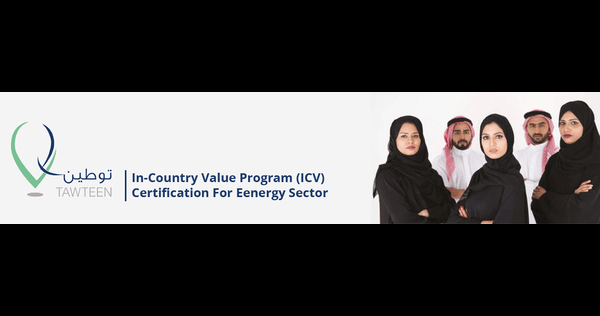The Importance of ICV Certification in Qatar’s Energy Sector

Qatar’s energy sector is a cornerstone of its economic development. Making it crucial to ensure its sustained growth and contribution to the national economy. Recognizing the significance of promoting local content and building a strong industrial base. Qatar has implemented the In-Country Value (ICV) certification program. This article delves into the importance of In-country value Qatar energy sector and its positive impact on economic diversification.
Understanding ICV Certification
The ICV certification program is a strategic initiative introduced by the State of Qatar to promote local industries. It creates job opportunities for its citizens. Its primary goal is to assess and enhance the contribution of businesses operating in the energy sector towards local value creation. The ICV certification program evaluates several factors. This includes local spending, local manufacturing, technology transfer, and job creation, to determine the extent of a company’s commitment to supporting the Qatari economy.
Driving Economic Diversification
One of the central objectives of the ICV certification program is to drive economic diversification in Qatar. By incentivizing companies to increase their local spending, the program stimulates the growth of domestic industries, fostering entrepreneurship and innovation. The emphasis on local content and value creation reduces the country’s reliance on imports, enhances self-sufficiency, and establishes a more resilient and sustainable energy sector.
Creating Employment Opportunities
The ICV certification program plays a vital role in promoting human capital development and reducing unemployment rates in Qatar. Through incentives for companies to hire and train Qatari nationals. The program addresses the challenge of youth unemployment and cultivates a skilled workforce. Encouraging the transfer of knowledge and expertise from international companies to local employees. The program promotes the growth of a highly skilled labor pool within the energy sector. This focus on human capital development aligns with Qatar’s long-term vision of building a knowledge-based economy.
Stimulating Local Manufacturing and Technology Transfer
The ICV certification program aims to boost local manufacturing capabilities and facilitate technology transfer within the energy sector. By encouraging companies to invest in local manufacturing facilities, the program creates opportunities for small and medium-sized enterprises (SMEs) to participate in the supply chain. This not only strengthens the energy sector’s resilience but also contributes to the overall development of Qatar’s industrial sector. Furthermore, the emphasis on technology transfer helps Qatar build its technological capabilities, fostering innovation and enabling local companies to compete globally.
Attracting Foreign Direct Investment
ICV certification enhances Qatar’s appeal as an investment destination for international companies. By demonstrating the government’s commitment to local content and value creation, the program creates a favorable environment for foreign direct investment (FDI). International companies are encouraged to collaborate with local businesses, facilitating knowledge exchange and technology transfer. Consequently, the ICV certification program acts as a catalyst for collaboration, leading to increased investment in Qatar’s energy sector.
Conclusion
The ICV certification program is an instrumental tool for promoting local content, economic diversification, and job creation in Qatar’s energy sector. By encouraging companies to increase local spending, develop local manufacturing capabilities, transfer technology, and create job opportunities for Qatari nationals, the program contributes to the sustainable growth of the energy sector and overall economic development. As Qatar continues its journey towards a knowledge-based economy, the ICV certification program remains a crucial pillar for fostering collaboration, innovation, and long-term prosperity in the energy sector.



